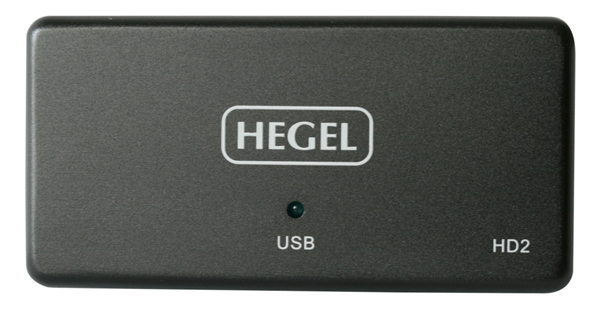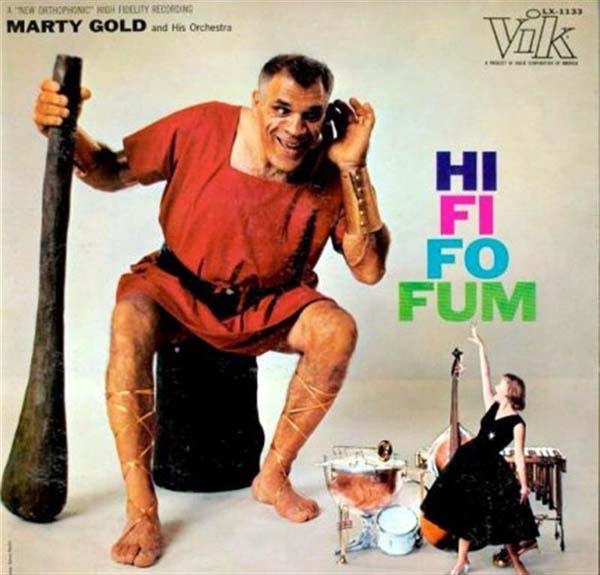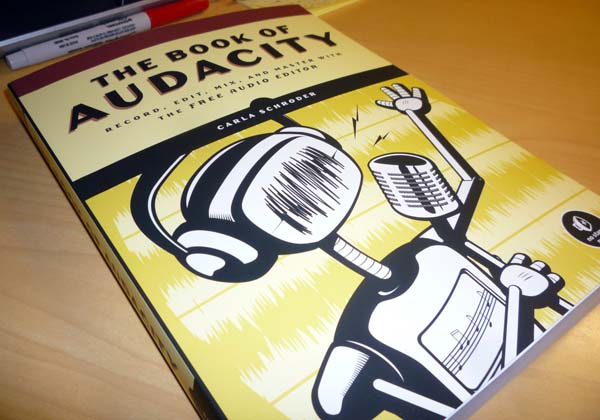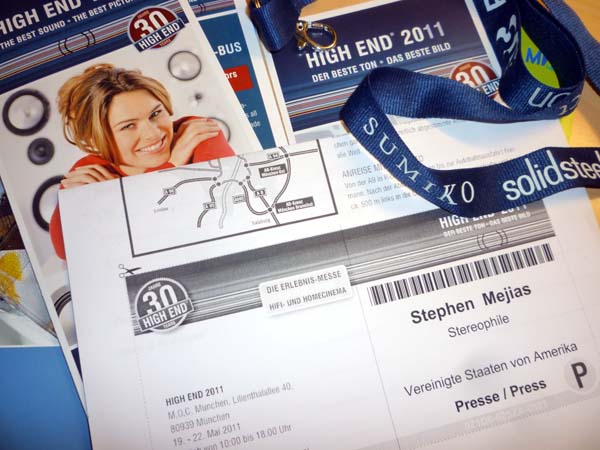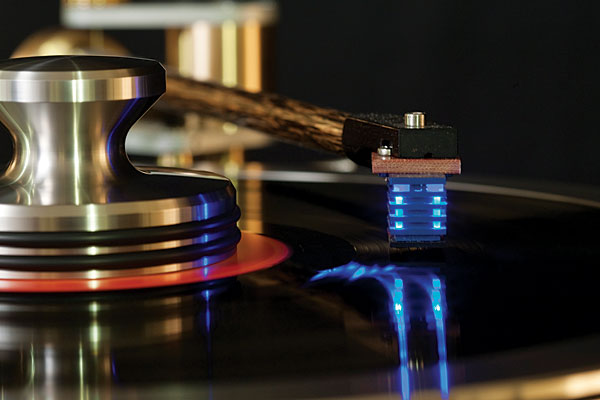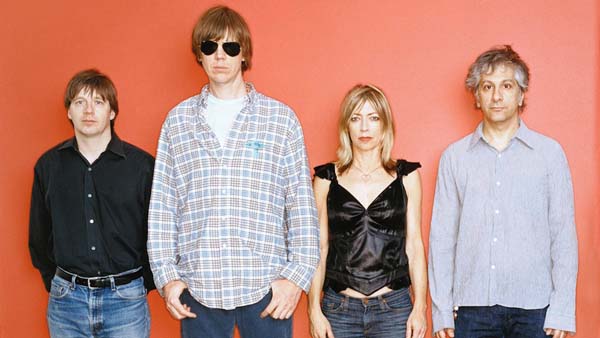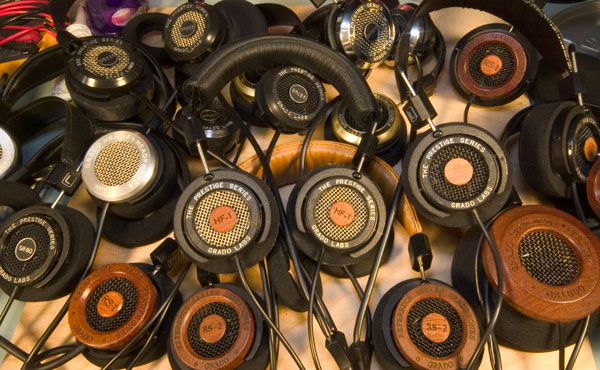LATEST ADDITIONS
Do Audiophiles Like Music?
It seems a strange question with an obvious answer until you stop and think about it. So many conversations between audiophiles focus on gear and sound, but leave music—that thing which should fuel our passion—lost in the jet-black background.
Ever notice when you and your audiophile buddies get together the conversation is usually 90% equipment and sound, and 10% music? We have been building, tuning, and voicing these systems for decades. Shouldn't the talk be more about music now?
Do you agree? Disagree? Why? Share your thoughts in the forum.
The Book of Audacity
Polyvinyl Shares the Joy
Going to Germany
I was going to write that I don’t know what to expect, but then I thought about it and I realized that I have some ideas: Long days, hard work, lots of hi-fi, potential communication problems, beautiful people, beautiful music, beautiful beer. And that, actually, sounds a lot like home.
The 2011 High End Show in Munich, Germany, will be the first hi-fi show I’ve attended outside the US, and will mark my first trip to Europe since studying abroad at Wroxton College in Oxfordshire, England, in 1998. While I dread—seriously dread—going to Las Vegas for the annual Consumer Electronics Show, I’m really looking forward to Munich. I’ve never been to Germany.
For more information on High End 2011, visit the website.
Soundsmith Strain Gauge SG-200 phono cartridge system
As if he's not got enough to do building his extensive lines of moving-iron cartridges, preamplifiers, amplifiers, and speakers, Soundsmith's Peter Ledermann also makes a full line of strain-gauge cartridge systems available with a choice of six user-replaceable stylus profiles. I believe the Soundsmith is the only strain-gauge cartridge currently made anywhere in the world. Ledermann says it takes him a full day to build one.
Pinetop Perkins
Many years ago, when all of the South by Southwest seminars and panels were located inside the Hyatt Hotel across Town Lake from downtown Austin, I tottered in from a long night of music and revelry, and stood waiting for one of the glass elevators that ran up and down one side of the hotel’s giant atrium. When the car arrived the doors swung open to reveal Mississippi blues piano player Pinetop Perkins who according to my math had to be in his early Eighties then, and who, with a mixture of teeth and gold in his mouth, was flanked by two beautiful and much younger white women luxuriously dressed in fur coats. Far be it from me to cast aspirations but these looked to me like working girls. The dapper Pinetop shot me the most mischievous grin you can imagine while slipping his arms around each woman’s waist.
Live Music for Japan Relief
“The tragedy and devastation is really overwhelming,” says John Zorn, who has organized and will host the evening. “I’ve always felt a strong personal connection to Japan, and I’m just glad to be able to do my part to help. It should be an amazing night.”Both the performers and the theater are donating their services, ensuring that 100% of proceeds from ticket sales will go to benefit the victims of the earthquake and tsunami that hit near Sendai on March 11. Funds will be donated to the Japan Society’s Earthquake Relief Fund.
Tickets for the show were sold out shortly after they went on sale, but Miller Theater has created a web page with information on ways to support Japan relief and a list of other benefit concerts in New York. Included among those benefit shows:
Friday, April 8, 6:30 & 9:30pm: Thurston Moore, Matthew Shipp, Ikue Mori and John Zorn, Milford Graves, Mark Feldman and Sylvie Courvoisier—awesome line-up!!!—Norah Jones, Buke and Gass, and others will perform at the Abrons Arts Center.
Saturday, April 9: The Japan Society will hold a day-long benefit concert, including gala performances at 1pm and 6pm, with performances by Philip Glass, Lou Reed, Laurie Anderson, and Ryuichi Sakamoto.
More benefit shows will be announced.
Tomorrow, March 23, 8pm: Yo La Tengo will perform at Maxwell’s (1039 Washington Street, Hoboken, NJ). Tickets cost $50, with all proceeds from ticket sales and fees going to Peace Winds Japan. I hope to see you there.
Thinksound ts02 in-ear headphones
I haven’t had much luck with in-ear headphones.
Kelli’s Etymotic ER-6i earphones ($99) offered a well-balanced sound, with satisfying bass and natural highs, but I found them extremely uncomfortable and I had a difficult time getting them to fit properly in my ear canals. I liked Shure’s SE210 ($149.99) and SE115 ($139.99), but they felt large and heavy in my ears, and friends often balked at their prices. Don’t get me started about the V-MODA Remix Metal in-ears ($99.99); their highs were so pronounced and glaring and bass so completely absent, I wanted to run away from my music—never a good sign. (But I’ll take the blame here: I should’ve known what to expect from an earphone with the word “Metal” in its name. I have since steered clear of models designed to look like bullets, arrows, and jet engines or whose product literature uses the words “crisp,” “sharp,” or “edgy.”)
Evaluation of Grado Stock and Modified Ear-Pads
Promises Kept
My first post was an exercise in getting all the bits-and-pieces together to create content. In many ways this is my first real post here ... and I want to keep a promise. For years I've said I would measure the effects of the various headphone pads on Grado headphones; well, I am very glad to say finally: here it is.

